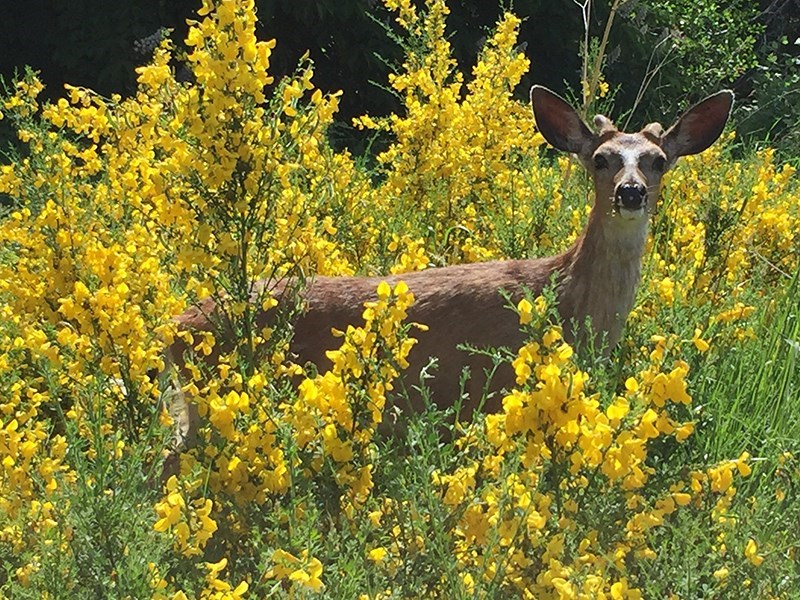It’s that time of year again when broom busting enthusiasts head out to cut down Scotch broom.
Powell River fire chief Terry Peters said it’s an annual campaign and something he started a few years back. He said in his role as fire chief, he was aware of the fire hazard broom represents – it’s incredibly flammable.
“I did some research on it because I’ve been cutting broom for a few years myself,” said Peters. “I started because a few kids in the neighbourhood had allergies and I was trying to relieve some of the breathing for the kids. I then found out that broom was a lot more problematic than I dreamed of so I reached out to the broom busters on Vancouver Island.”
Peters said there is great support for cutting broom in Powell River and the surrounding region.
“It’s just one little thing that people do during the time of year to combat invasive species,” said Peters. “The reality is that people go out and do what they can while it’s in bloom. In the last four years, we have cut down a significant amount.
“It’s making the community fire smart, we’re combatting invasive species and it’s making it easier to breathe for people with allergies,” said Peters.
He said the program in Powell River has already started. The provincial ministry of transportation and infrastructure (MOTI) gave a grant to the broom busters program on Vancouver Island and some funds were allocated to Powell River. The focus for the MOTI program was on the highway and people were hired to participate in the cutting program.
The best time to cut broom is when the yellow flowers bloom, said Peters. Some plants that are cut down will seed the surrounding area but Peters said where people have been cutting, significant gains are being made.
Those interested in cutting broom can contact Peters at [email protected], or at the fire hall at 604.485.4431. He said those writing in will be put on the mailing list and he will let everyone on it know what is going on.
Broom busting season is a short period, lasting only a couple of months, said Peters.
“At the end of the day it’s a feel-good thing,” he said. “I encourage people to go out there and have fun. Many hands make the job lighter.”
The goal is to be broom-free in 10 years, said Peters. He said with the number of people involved, tremendous progress is being made.
Peters said a few big projects are being planned, namely the Manson connector above the Penticton trails, the Wildwood bluffs near Gibsons Beach, and Padgett Road, to name a few.
“Of course, being safe is our number one priority when cutting and during the pandemic, so hopefully with that in mind, we can have another successful broom busting season,” he added. “Once again it has been a perfect wet season for ultimate growing and we must be persistent to keep ahead of the growth to ultimately meet our 10-year goal of a broom-free community.”
In terms of disposing of the Scotch broom, if people are cutting broom under the power lines, they can just leave it where they cut it, said Peters. Anywhere else, if people have a pile, such as a pickup load, Peters said he will make sure it is picked up.
Small amounts can be taken to Augusta Recyclers, where the trimmings can be placed with other invasive species.
Peters said for people seeking more information, broombusters.org is a treasure trove of information regarding the Scotch broom containment campaign.

